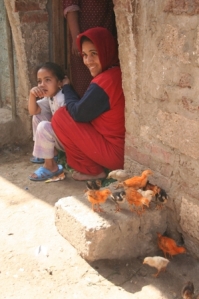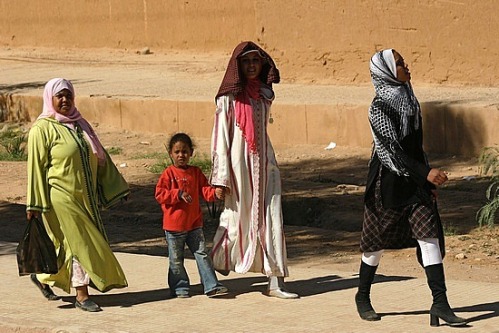Scroll through all the photographs and footage of the mass protest movements in Tunisia, Yemen and Egypt and you will not be hard-pressed to find some women in the crowds. Perhaps fewer here and more there, but they are present and making their voices heard. Nawal El Saadawi, an Egyptian human rights activist and former political prisoner told NPR “women and girls are beside the boys, are in the streets. We are calling for justice, freedom and equality, and real democracy, and a new constitution where there is no discrimination between men and women, no discrimination between Muslim and Christians, to change the system and to have real democracy.”
While these countries, indeed the greater region, is looking toward “freedom” with an emphasis on “reform”, they would do well to look inward, as individuals and as a society, to see what they need to reform at home – not just what their governments need to reform from the top down.
At this point, we all accept the truth that widespread corruption, unrewarding social and economic conditions coupled with repression and lack of political freedom has become a volatile combination that gives Arab regimes everywhere reason to worry about popular uprisings. We associate the protests with throngs of Arab male youth. But these bleak circumstances apply just as well to young Arab women, some of whom have made it onto the streets with clenched fists and gone home with tired vocal chords; many of whom aspire to greater things than being married off before they’re ready, being expected to bear more children than they can take care of, and living a sequestered life of domestic service, as rewarding as that may be to those who choose that path. The trouble is, reform must start at home. And at home, in most of these countries, life continues unchallenged under autocratic rule: the rule of the patriarch. Choice for women is still scarce and the freedom that comes with the right to choose is still illusive.
Take a look at Yemen and you’ll see some of the most repressive cultural practices against women. More than half of Yemenese girls are married off before the age of 18. A law introduced last year to declare “child briding” illegal was brought down with Islamist protests. There is no culture of education for women/girls, and fathers admittedly think it’s a waste of time to educate their daughters. They see them as simply a labor force, to be used while they are in possession, and to be paid for once they are married off. The logic is that once married, the girls are now a labor force for the groom’s family and the patriarch should pay for the purchase. This tradition leads to the abuse of women and girls over the duration of a lifetime. Reform has to start at home.
Take a look at Egypt and you will find that more than a quarter of its children live below the level of poverty (less than $1US/day) and in rural areas that number is far higher, according to the UN perhaps as high as 45%. This may explain why families feel the need to sell their daughters to servitude, in order to be able to feed the rest of the family. Education in rural areas is a non-starter, often even for young boys, much less the girls. Basic health care and hygiene are unavailable to an estimated 5 to 6.6 million children in Egypt, according to IRIN. The women who are largely tasked with caring for and raising these children fare no better. They were likely brided at an early age, had children in an uncontrolled way and have little resources and no education by which to support them. The men dictate the rules of the family and the women have no say in the husband they spend their lives with, the age at which they bear children or the number of children they bear.
A prominent voice on the Egyptian uprising recently told of a twitter message where a young Egyptian woman said at a demonstration she attended in support of women judges in Egypt, a man who opposed the appointments of women to the State Council, an influential court which governs matters of administrative law in Egypt, yelled at the women “a woman menstruates so she shouldn’t be a judge”. A male lawyer yelled “Go home and cook for your husbands.” Does that sound reform minded to you?
Tunis, on the other hand, enforced relatively equal treatment of its women. A civil rights code created in 1956 legalized the near equal status of women to men in the eyes of the local law. In Tunis, under Ben-Ali, women were banned from wearing head scarves in schools or government offices. Ben Ali and his predecessor made sure Tunisia was governed ruthlessly, but secularly. Tunisian women are described as “unique in the Arab world” for enjoying greater freedoms than their Arab neighbors.
NPR’s Eleanor Beardsley reports Tunisian women have the same rights to divorce as men, and polygamy is illegal. “Women here have had access to birth control since 1962 and have had access to abortion since 1965 — eight years before Roe v. Wade gave American women the same right.” Now that’s reform minded.
But we will be watching closely to see what transpires in the aftermath of Tunisia’s revolution, and how women continue to fare, particularly if Islamists rule the land without a commitment to separate mosque and state.






